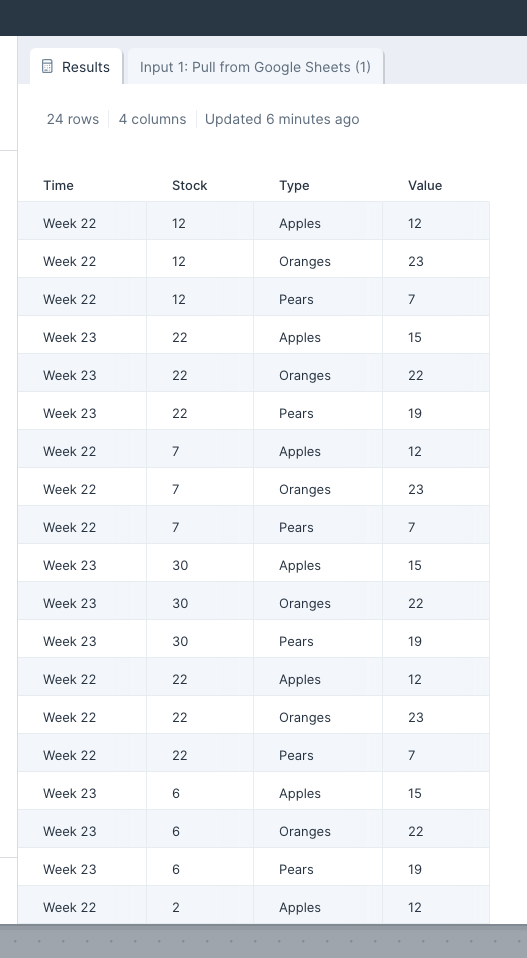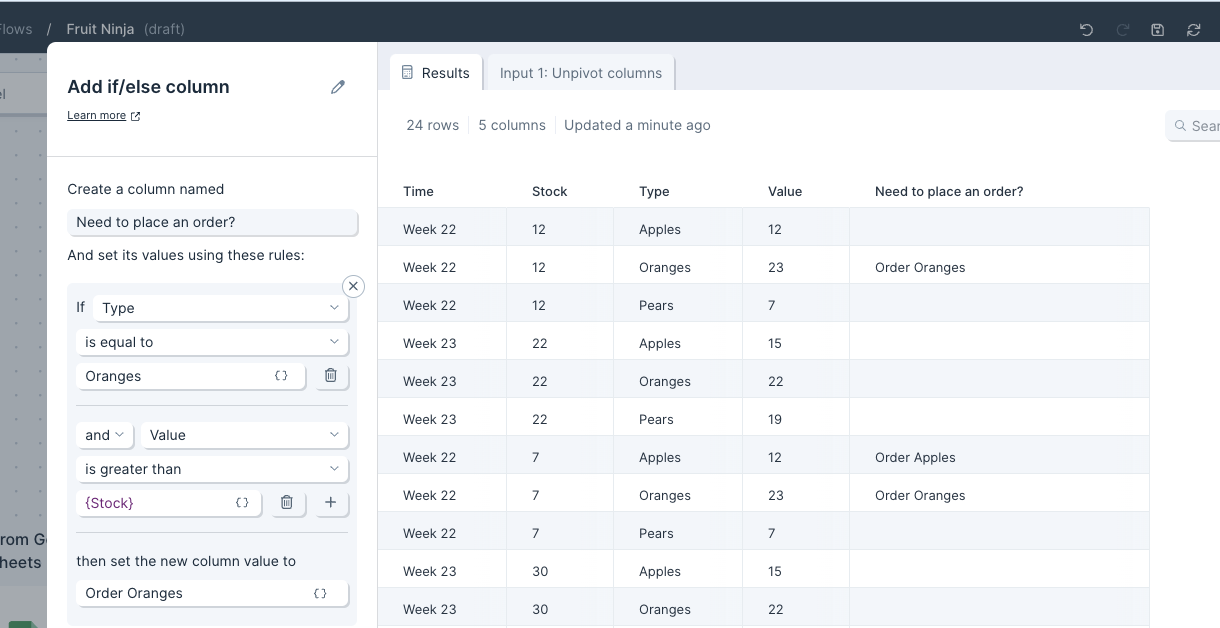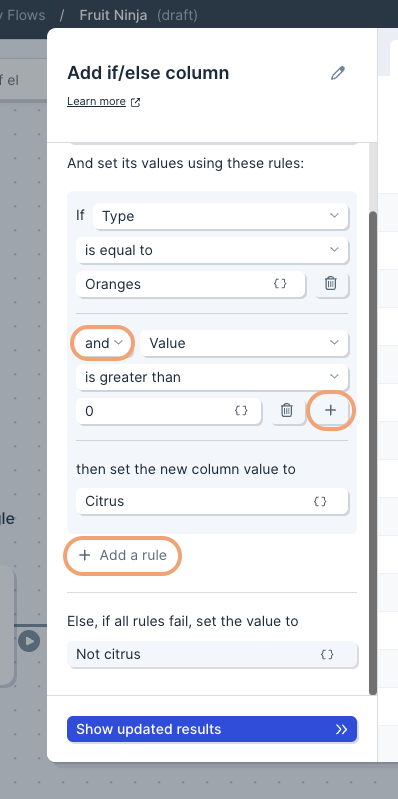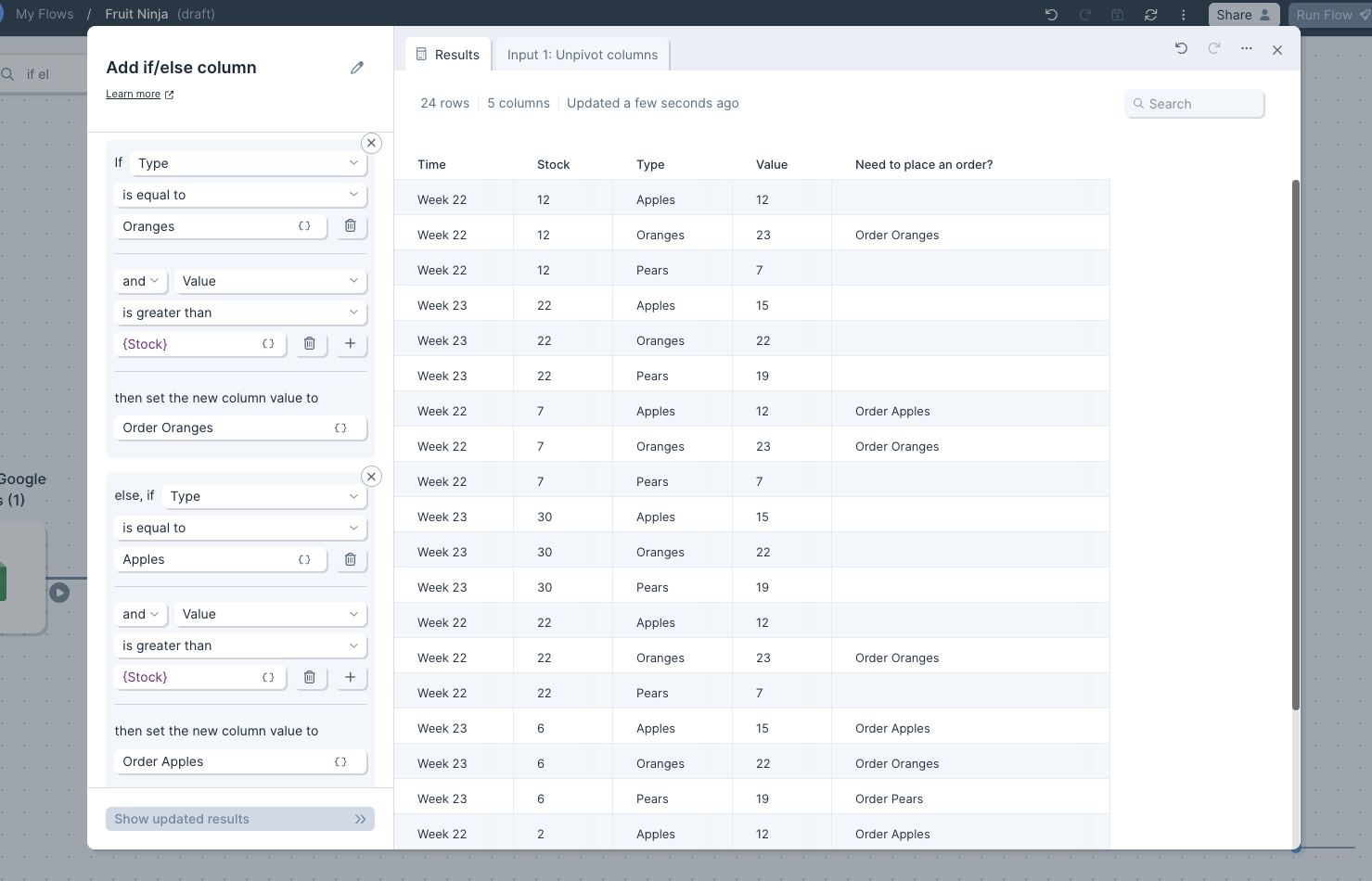Add if/else column
The Add if/else column step enables you to insert a conditional column filter.
A conditional statement is a core building block of any programming language. In Parabola, these are Add if/else column steps. The goal of each Add if/else column step is to create one column where the value of each cell in that column is dictated by the rules you create within the step.
Input/output
Our input data for this step is a table with four columns.

Our output data, after using this Add if/else column step, has a new fourth column "Need to place an order?" that tells us whether to place an order and the values in "Type".

Custom settings
To enter an additional criteria, click into the + and select the column you'd like to run the criteria against. You can switch between adding condition filters by clicking on and and switching it to or.
To add an additional rule, click on the + Add a rule button.

If you'd like the step to reference a match between two columns, reference the column by placing them in curly brackets like so: {column name}.
If you'd instead like to search for specific values, you can enter the letter or number characters instead of the column name wrapped in curly braces.

Then, enter what you'd like the ew value to be in the set the new column value to section.
Finish by saving this step's settings by selecting the "Show Updated Results" button on the bottom of the lefthand-side toolbar.
Helpful tips
- The best use of this step includes (A) column name, (B) default value if no rules match, and (C) at least one rule.
- The "+ Add Rule" button adds another if statement. How it evaluates determines which value is set in the output. If it's true, it sets it to the new value. If it's false it moves to the next rule below it. Later rules cannot overwrite values set from earlier rules.
- Technically all you need to use this step and insert a conditional column matching rules you've created are: (A) a column name and (B) a default value if no rules match. With only a default value and no rules, the step will create a column with rows filled of your chosen value.

